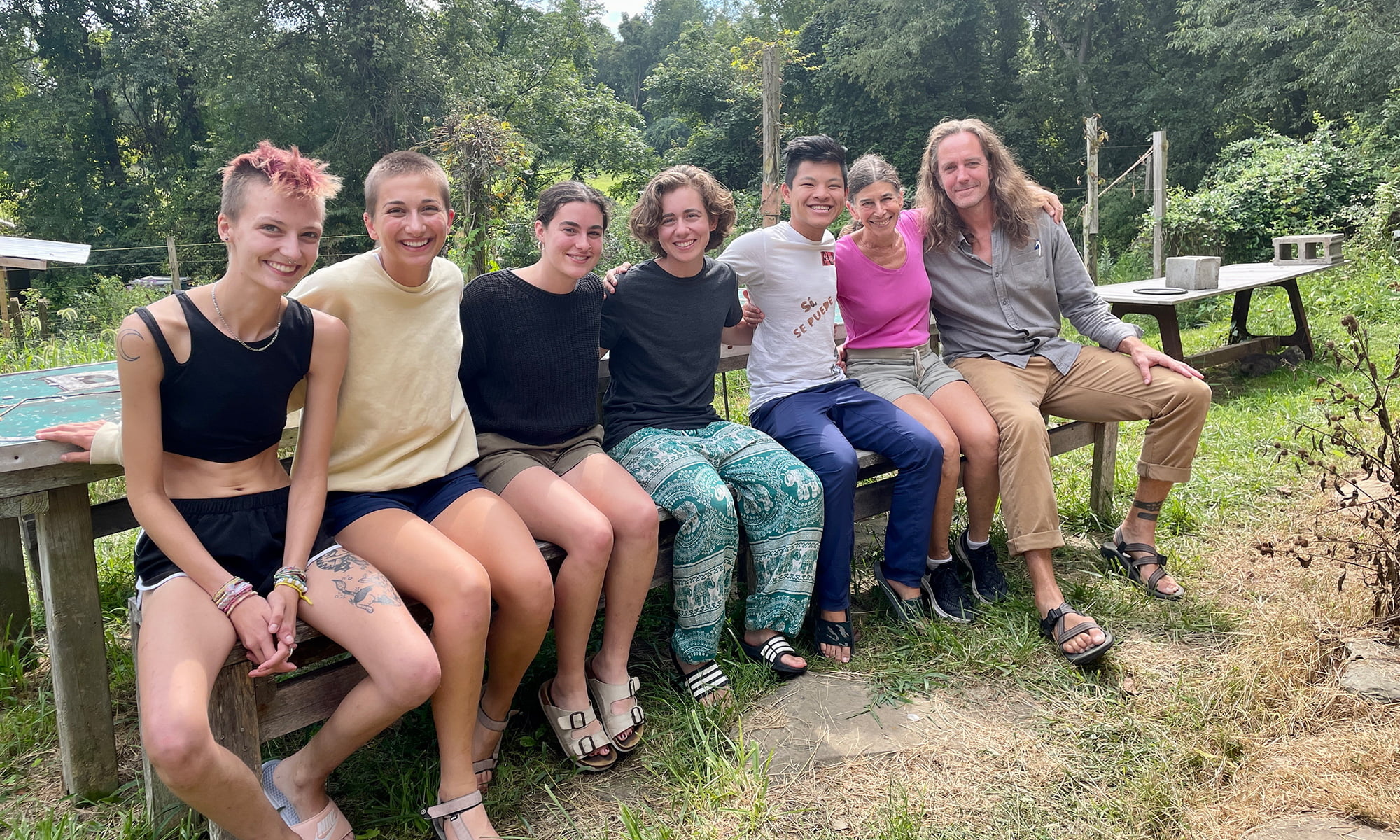Tucked in a sunny clearing between field and forest, the Homestead living/learning community is a nearly 50-year-old reminder of Denison’s sustainability roots.
Established in 1977, the Homestead is the result of a collaboration among biology professor Bob Alrutz and enthusiastic students. It originally consisted of three student-built cabins without running water, heated by wood stoves. Also home to a dairy goat named Sasha, the community was truly off grid, an embodiment of 1970s environmentalism and an exercise in back-to-the-land simplicity and self-reliant democracy.
But the Homestead is not a relic — it’s a forward-looking space for residents and visitors to imagine future possibilities.
The Homestead continues to be “an ever-evolving experiment in community,” as its mission states, implementing cutting-edge technologies. From rooftop solar arrays and composting toilets to innovative building materials and passive solar design, the Homestead puts its principles — such as “reduce, reuse, recycle” and “leave it better than you found it” — into practice.
The students drawn to the Homestead are diverse. They find common ground around the large kitchen table and home-cooked vegetarian meals.
“I love learning about everyone’s different perspectives on the world, as well as hanging out with those who share my love of the environment,” says international studies major Sawyer Muir ’23.
Muir lived at the Homestead before spending a semester in Nepal, and he returned for another stay. He says the community feels “more like a family than simply a bunch of students.”
For Moriah Aberle ’23, a math major also on her second semester at the Homestead, the ability and the agency to live out sustainable ideals is a major draw. Learning that one of the cabins had some issues with its solar connection, for example, she investigated the cause and is now leading a team of students, staff, and Homestead alumni to repair the problem. She’ll report her findings back to the Homestead Advisory Board. She also earns credit as part of the Homestead Seminar, an academic acknowledgement that this place is a true living-learning experience.
At the Homestead, students respond to sustainability questions by taking action and observing results. For example, students can make adjustments for their energy and food consumption, usage, and lifestyle, then watch in real time as kilowatt hours are saved, food scraps break down in the compost pile, or wood that once was a deck finds new life as a bench.
“You can come as you are, and the Homestead can bring you wherever you want it to,” Aberle says. “It’s something different to every person, every semester, every day.”
Chopping wood, cooking with cast iron, tending chickens, or growing carrots, students leave the Homestead with practical skills and an appreciation for living lighter on the land. Change always comes, but there’s continuity in Homestead values that live on well after students move away.
About the Homestead Advisory Board:
The Homestead Advisory Board was established in 1996. Anyone interested in the welfare of the Homestead and its inhabitants may serve. The Homestead Constitution calls for a mixture of Homestead residents, faculty, and staff. At least two Homesteaders and the Homestead Coordinator must serve on the board. The board’s responsibilities include:
- Review and approval of all major physical changes affecting the university’s property including the building of facilities.
- The purchase or construction of major equipment items.
- Review of the curricular elements of the Homestead Program.
- The auditing of fiscal transactions.
- All contractual arrangements affecting the university.
- All matters normally covered under the student life policies of the university.


